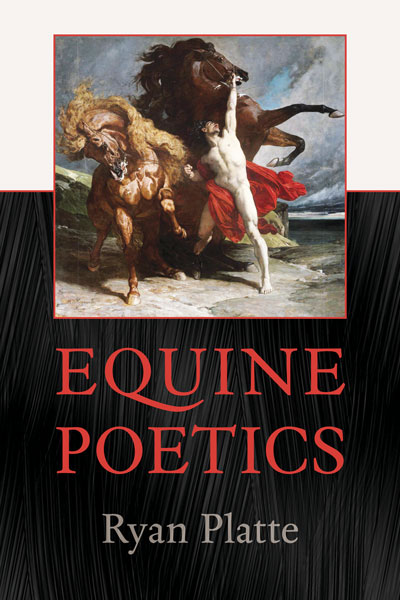Equine Poetics
Equine Poetics is a literary analysis of horses and horsemanship in early Greek epic and lyric poetry, especially those facets that reflect the prehistory of Greek language and culture.
The book begins with Ryan Platte’s analysis of Homeric formulas for horses, proposing a model by which most such formulas may be understood as members of a single verbal network, with roots in…
Equine Poetics is a literary analysis of horses and horsemanship in early Greek epic and lyric poetry, especially those facets that reflect the prehistory of Greek language and culture.
The book begins with Ryan Platte’s analysis of Homeric formulas for horses, proposing a model by which most such formulas may be understood as members of a single verbal network, with roots in preliterate antiquity. He then considers the poetic relationship between horses and humans, leading to an analysis of the figure of the metapoetic charioteer. Finally, the work compares myths featuring chariot races and bridal contests, focusing on the supposed mythological inventiveness of Pindar’s Olympian 1.
Platte develops a methodology rooted in oral verse mechanics to understand contest-based mythical parallels that have defied easy historical explanations—in Greece and beyond. Drawing from the fields of comparative poetics and historical linguistics, Equine Poetics sheds new light on fascinating and puzzling aspects of these central figures in early Greek verbal art.
Available for purchase in print via Harvard University Press.
Platte, Ryan. 2017. Equine Poetics. Hellenic Studies Series 74. Washington, DC: Center for Hellenic Studies. http://nrs.harvard.edu/urn-3:hul.ebook:CHS_PlatteR.Equine_Poetics.2017.
This work is licensed under a Creative Commons 3.0 License.

